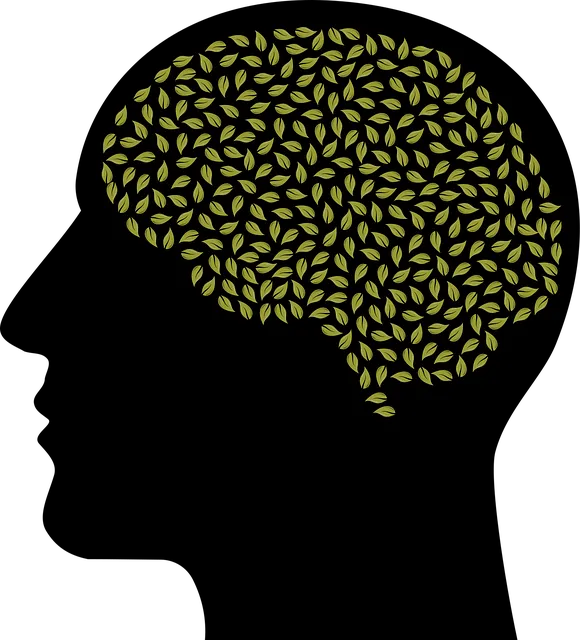Depression, a complex mental health issue, requires early recognition and culturally competent care, as offered by the Lone Tree Kaiser Permanente Mental Health Access Center. Recognizing signs like persistent sadness, sleep/appetite changes, and concentration issues is vital for prompt intervention. The center teaches conflict resolution skills and mood management techniques to empower individuals in coping with challenges. Creating supportive environments at home and work, fostering open conversations about mental well-being, and implementing stress management techniques are key prevention strategies. Experts recommend incorporating healthy habits like exercise, balanced nutrition, and mindfulness for proactive depression risk management. The center provides comprehensive support through evidence-based therapies, focusing on self-care, stress reduction, and building resilience to help individuals lead happier lives.
Depression is a prevalent yet treatable condition, impacting millions worldwide. This article explores effective strategies for prevention, empowering individuals to take charge of their mental well-being. We delve into understanding depression’s subtle signs and symptoms, emphasizing the role of early detection. Creating supportive environments at home and work is key, along with adopting healthy habits for both mind and body. Additionally, we highlight valuable resources offered by the Lone Tree Kaiser Permanente Mental Health Access Center, providing accessible professional help when needed.
- Understanding Depression: Recognizing Signs and Symptoms
- Creating a Supportive Environment at Home and Work
- Incorporating Healthy Habits for Mind and Body
- Seeking Professional Help: Resources from Lone Tree Kaiser Permanente Mental Health Access Center
Understanding Depression: Recognizing Signs and Symptoms

Depression is a common yet serious mental health condition that can significantly impact an individual’s daily life and overall well-being. Recognizing the signs and symptoms early on is crucial for effective prevention and treatment. At Lone Tree Kaiser Permanente Mental Health Access Center, we emphasize the importance of understanding depression as a complex disorder with various manifestations.
The initial steps towards prevention involve being aware of common indicators such as persistent feelings of sadness, loss of interest in activities once enjoyed, changes in appetite or sleep patterns, fatigue, difficulty concentrating, and thoughts of worthlessness or suicide. These signs may vary across individuals based on their unique experiences and cultural backgrounds. For instance, a person’s emotional expression can be influenced by cultural competency training, which educates healthcare providers and fosters effective communication. Moreover, conflict resolution techniques and mood management strategies taught through such programs empower individuals to navigate challenging situations while maintaining mental resilience.
Creating a Supportive Environment at Home and Work

Creating a supportive environment is key to depression prevention, especially at home and in the workplace. Lone Tree Kaiser Permanente mental health access center emphasizes the importance of fostering open conversations about mental well-being. This can involve implementing strategies like regular check-ins with colleagues or family members, encouraging active participation in support groups, and providing accessible resources for stress management. A culture that prioritizes mental health, where individuals feel comfortable discussing their struggles without fear of stigma, is instrumental in early intervention and sustained recovery.
At home, establishing routines that promote self-care practices can significantly contribute to risk management planning for mental health professionals. This includes maintaining consistent sleep schedules, engaging in regular physical activity, and adopting healthy eating habits. Community outreach program implementation on a larger scale can create networks of support, ensuring individuals have access to resources and services tailored to their unique needs. Incorporating self-care practices into daily life not only helps manage stress but also serves as a proactive measure against depression, ultimately enhancing overall well-being.
Incorporating Healthy Habits for Mind and Body

Incorporating healthy habits for mind and body is a foundational strategy in preventing depression, as advocated by professionals at the Lone Tree Kaiser Permanente mental health access center. Regular physical activity, balanced nutrition, and adequate sleep play pivotal roles in maintaining emotional well-being. Engaging in activities that promote relaxation and stress reduction, such as mindfulness meditation or yoga, can help individuals cultivate inner calm and resilience. These practices not only enhance overall mental health but also serve as powerful tools for managing stressors that might otherwise trigger depressive episodes.
Additionally, fostering social connections and practicing empathy building strategies have been shown to be effective in depression prevention. Engaging in compassion cultivation practices, like those offered by Stress Management Workshops Organization, can help individuals develop deeper understanding and kindness towards themselves and others. These initiatives support a sense of belonging and purpose, which are essential for maintaining a positive outlook and preventing feelings of isolation that can contribute to depression.
Seeking Professional Help: Resources from Lone Tree Kaiser Permanente Mental Health Access Center

At Lone Tree Kaiser Permanente Mental Health Access Center, individuals facing depression have access to a wealth of resources and professional support. Their team of experts offers specialized care tailored to each person’s unique needs, focusing on evidence-based therapies and strategies for long-term well-being. Through individual therapy sessions, clients can explore underlying issues, develop coping mechanisms, and gain insights into their mental health.
The center promotes a holistic approach to depression prevention, emphasizing the power of self-care and mind over matter principles. They provide education on stress management techniques, healthy lifestyle choices, and building resilience to overcome challenges. By combining these tools with professional guidance, individuals can build confidence, enhance coping abilities, and take proactive steps towards a happier, more fulfilling life.
Preventing depression is a multifaceted approach that involves creating supportive environments, adopting healthy habits, and knowing when to seek professional help. By recognizing signs early and implementing strategies from home and work to mind and body care, individuals can better navigate life’s challenges. The Lone Tree Kaiser Permanente mental health access center offers valuable resources for those seeking additional support, emphasizing the importance of taking proactive steps towards mental well-being.






